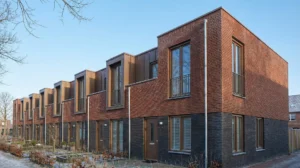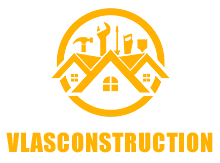Energy-Efficient Homes: Why They’re the Smart Choice in 2024
Introduction
In the Netherlands, the push towards sustainable living has never been more pronounced, especially with the upcoming changes in 2024. For Dutch residents considering house renovations, building extensions, or purchasing a new home, understanding the benefits and incentives of energy-efficient homes is crucial. This article will delve into the advantages, financial benefits, and practical tips for embracing eco-friendly homes in the Netherlands.
Basic Concepts
Before diving into the details, it's essential to understand some key terms and concepts:
- Energy Label: A rating system (A to G) that indicates the energy efficiency of a home. Homes with higher energy labels (A or B) are more energy-efficient and sustainable.
- NHG (National Mortgage Guarantee): A safety net for homebuyers that provides protection in case of financial difficulties or forced sales.
- Energy Investment Allowance (EIA): A tax relief scheme for businesses investing in energy-efficient technologies.
- Sustainability Measures: Includes home insulation, heat pumps, and other energy-saving features.
Benefits of Energy-Efficient Homes
Financial Incentives
In 2024, several financial incentives are being introduced to encourage the adoption of energy-efficient homes:
- Increased Borrowing Options: Homebuyers can borrow more for homes with high energy labels. For instance, buyers can secure up to €50,000 more for a mortgage on a home with an A or B energy rating compared to those with lower ratings.
- Exemption from Transfer Tax: Young buyers under 35 purchasing a residence valued up to €510,000 are exempt from the 2% transfer tax, making it more affordable to buy their first home.
- Higher NHG Limit: The NHG limit is increasing to €435,000, and for homes with energy-saving features, it rises to €461,100. This enhances the accessibility of the NHG, providing a crucial safety net for homebuyers.
Reduced Energy Costs
Energy-efficient homes are designed to reduce energy consumption, leading to significant savings on monthly bills:
- Lower Heating and Electricity Costs: Homes with high energy labels are better insulated and more energy-efficient, resulting in lower heating and electricity expenditures.
- Long-Term Savings: Over time, the savings from reduced energy bills can be substantial, making energy-efficient homes a smart long-term investment.
Environmental Benefits
- Reduced Greenhouse Gas Emissions: Energy-efficient homes contribute to environmental preservation by curbing greenhouse gas emissions.
- Sustainable Living: By choosing an energy-efficient home, you are supporting sustainable living and helping the Netherlands meet its sustainability targets.
Practical Tips for Homeowners
Financing Sustainability Measures
Most Dutch homeowners can afford serious sustainability measures through various financing options:
- Savings: Two-thirds of homeowners have enough savings to cover the costs outright.
- Loans: 29% can afford to get the necessary loans, and 3% qualify for a loan through the Heat Fund.
- Government Subsidies: Homeowners can benefit from government subsidies and favorable loan options. It is recommended to seek advice from a single, centralized source for sustainability advice.
Choosing the Right Mortgage
When purchasing or renovating a home, consider the following mortgage options:
- Higher Mortgages for Energy-Efficient Homes: Buyers can secure higher mortgages for homes with better energy labels.
- Discounted Mortgage Interest Rates: Many Dutch mortgage providers offer reduced interest rates for energy-efficient homes. For example, Rabobank offers a 0.10% discount, while ABN AMRO offers up to 0.15%.
Trends in Construction and Renovation
New Mortgage Rules
In 2024, new mortgage rules will come into effect, impacting both buyers and sellers:
- Increased Borrowing for Energy-Efficient Homes: Buyers can take out larger loans for homes with good energy ratings.
- Impact on Home Value: Homes with lower energy ratings are expected to become less valuable due to the new rules, while energy-efficient homes will increase in value.
Sustainability Obligations
The Dutch government is considering a phased introduction of sustainability obligations for new homeowners. This could mean that new homeowners will need to achieve a set energy label within a specified time frame after purchasing their home.
Materials and Technologies
Energy-Efficient Technologies
Investing in energy-efficient technologies can be highly beneficial:
- Home Insulation: Upgrading home insulation to achieve an energy label B or better is a key sustainability measure.
- Heat Pumps: Installing heat pumps is another significant step towards making your home more sustainable.
Government Support
The Dutch government provides several support mechanisms for businesses and homeowners investing in energy-efficient technologies:
- Energy Investment Allowance (EIA): Businesses can benefit from tax advantages when investing in designated energy-efficient technologies. The EIA allows businesses to deduct 40% of the investment costs directly from their taxable profit.
Conclusion
In 2024, energy-efficient homes are not just a sustainable choice but also a financially savvy one. With increased borrowing options, exemptions from transfer tax, and higher NHG limits, the incentives for choosing an eco-friendly home are compelling. By understanding the benefits, financing options, and trends in construction and renovation, Dutch residents can make informed decisions that align with their financial and environmental goals.
Practical Recommendations
- Consult Financial Advisors: Before making any decisions, consult with financial advisors to understand the best mortgage options and available subsidies.
- Check the Energy Label: Ensure the home you are purchasing or renovating has a high energy label to maximize financial benefits.
- Explore Government Subsidies: Take advantage of government subsidies and favorable loan options to finance sustainability measures.
- Consider Newly Built Properties: Opting for newly constructed properties can offer the most sustainable results with the latest energy-efficient technologies.
By following these recommendations and staying informed about the latest trends and incentives, you can make a smart choice in 2024 by investing in an energy-efficient home.








